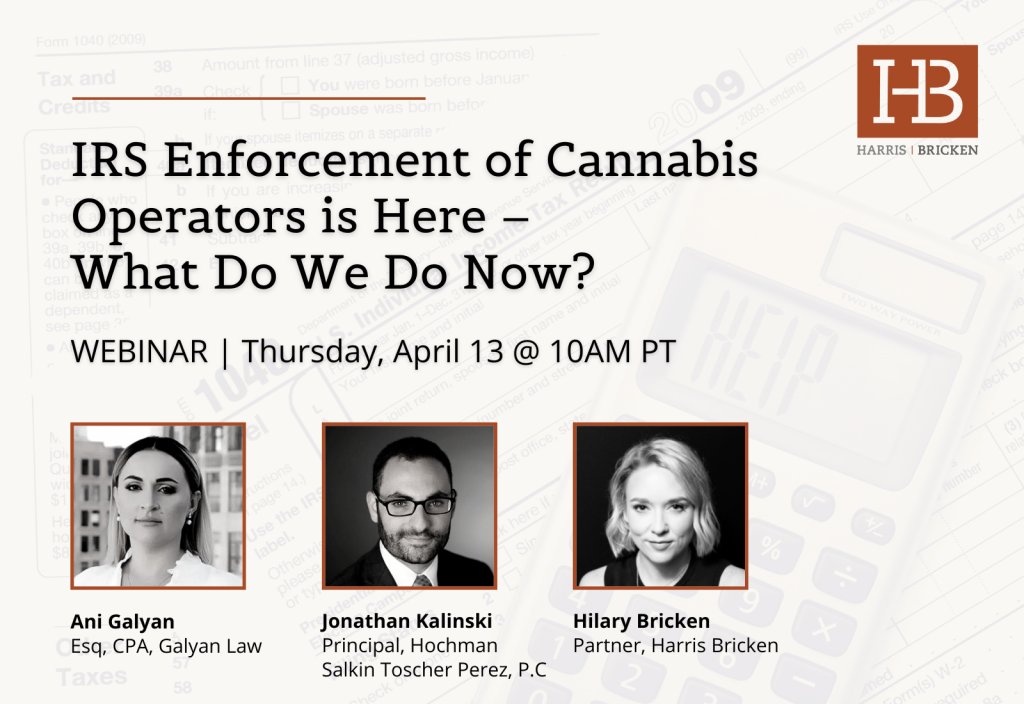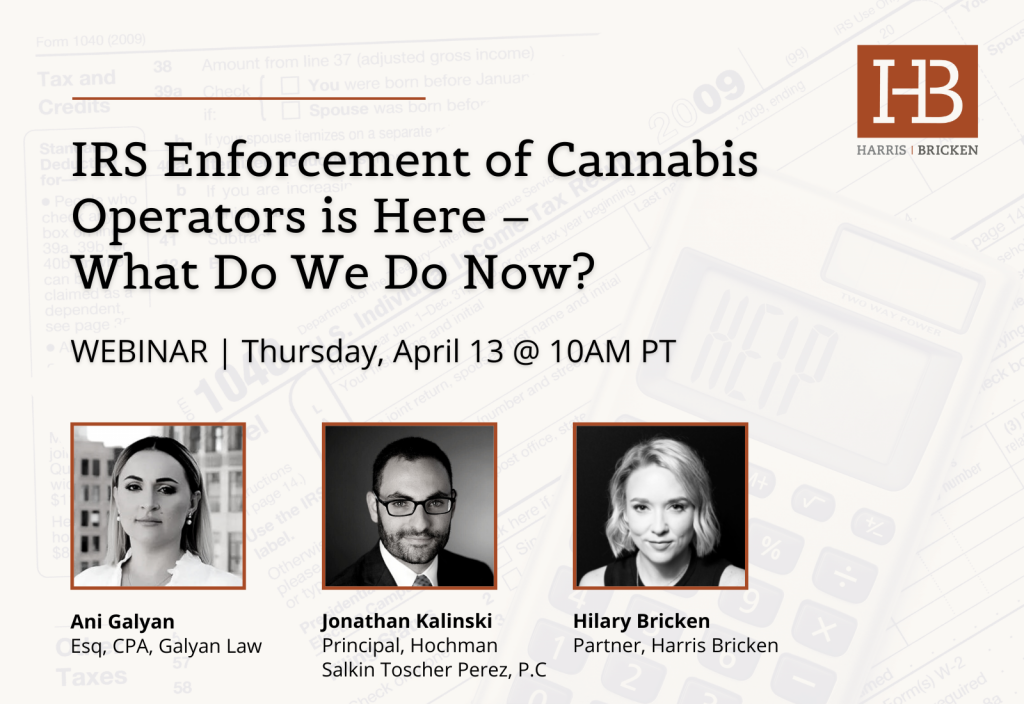
Register HERE to attend a free panel of experts directing cannabis operators on how to best combat the forces of recent movements from the IRS.
IRS enforcement is increasing and cannabis businesses should be on alert. Cannabis businesses are accounting for and reporting the results of their operations with gross receipts, cost of goods sold (COGS), and other deductions just like other for-profit businesses. However, as long as marijuana remains a schedule I controlled substance under federal law, these businesses must navigate the pitfalls of complex federal and state tax rules.
All gross income must be reported from whatever source it is derived. However, under Section 280E, cannabis businesses cannot deduct rent, wages, and other expenses unless it is for COGS, resulting in a substantially higher tax rate than other companies on their income. This dilemma has been the subject of recent tax court cases and appeals.
Listen as our panel discusses federal and select state tax rules impacting the cannabis industry, recent tax court cases, Section 280E, navigating an audit, and potential criminal exposure.
Key Talking Points Understanding IRS examinations, in general, and how to prepare for it Specific audit procedures/techniques the IRS is employing when auditing a
Read full article on HarrisBricken





































